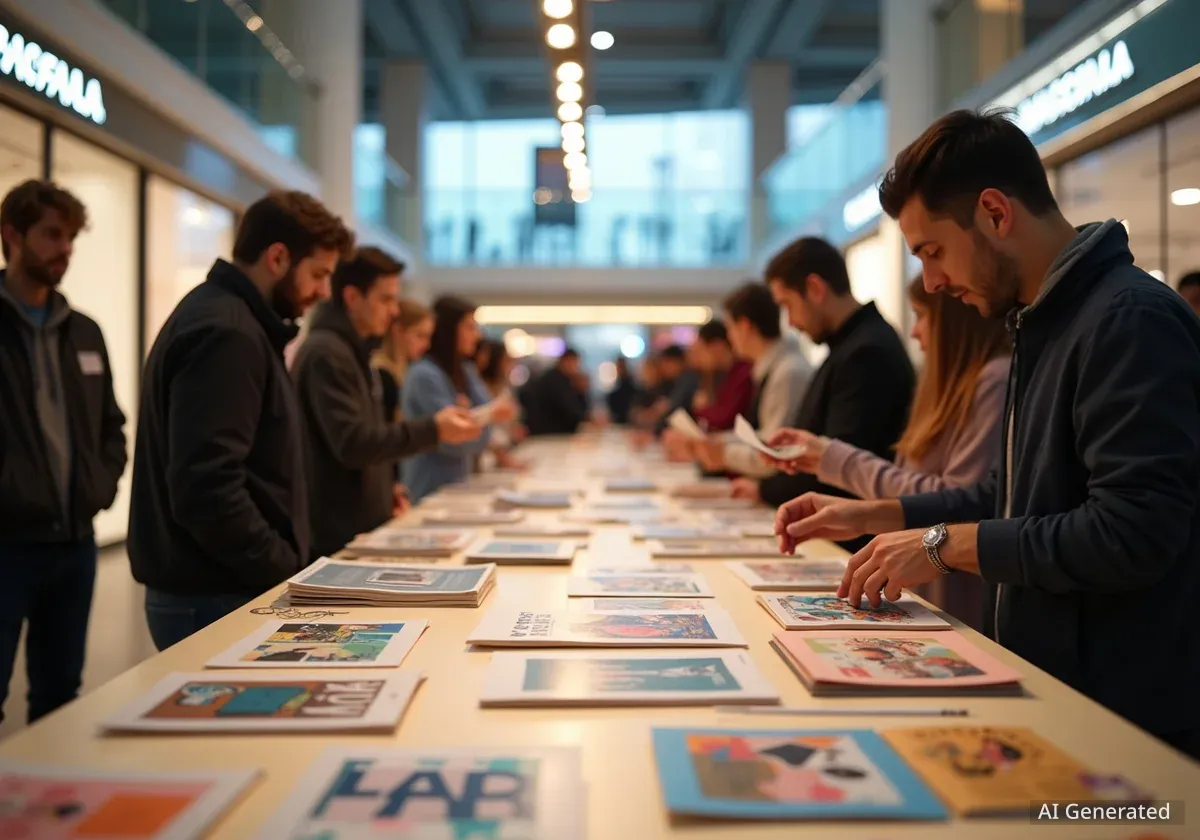Liverpool's creative industries are set to receive a significant boost with a new £25 million government investment. The fund, announced by Culture Secretary Lisa Nandy, is designed to support young creatives, professionals, and businesses in sectors such as film, music, and gaming.
The investment aims to provide essential resources like mentoring, finance, and networking opportunities to nurture emerging talent across the city. The program is scheduled to begin in 2026 and will be distributed over a three-year period.
Key Takeaways
- A £25 million investment has been announced for Liverpool's creative sector.
- The fund will target young people and businesses in film, music, and gaming.
- It will provide mentoring, finance, and networking support starting in 2026.
- The announcement was made by Culture Secretary Lisa Nandy at the Royal Liverpool Philharmonic Hall.
Details of the Investment Announcement
The formal announcement of the £25 million fund was made by Culture Secretary Lisa Nandy on Monday, September 29. The venue for the announcement was the Royal Liverpool Philharmonic Hall, a landmark of the city's cultural scene.
The event was part of a Labour Party Conference fringe meeting, where Nandy outlined the government's commitment to the arts and young people.
"Every child can draw, every child can dance, every child can dream; that is the difference a Labour government makes," Lisa Nandy stated during the announcement.
She framed the investment as a significant commitment to the next generation of artists and creators, adding: "Today I am delighted to announce a bold, unapologetic investment in our young people."
Funding Allocation and Timeline
The £25 million will not be a one-time payment. Instead, the funds will be allocated systematically over a period of three years, commencing in 2026. This long-term approach is intended to provide sustained support and foster stable growth within the creative ecosystem.
Impact on Liverpool's Young Creatives
The news has been met with optimism by young artists and professionals in Liverpool who often face financial barriers. Many creatives must balance their artistic pursuits with full-time jobs in unrelated fields to make ends meet.
Liverpool-based photographer Ayuba Enesi highlighted the challenges that this new funding could help alleviate. He explained that a lack of financial support is a primary obstacle for many in his field.
"Funding amongst other things is always a major factor that holds creatives back," Enesi said. "Having to juggle working a full-time job that’s completely unrelated to photography alongside pursuing my career is quite challenging but I do it anyway."
Enesi believes the investment will have a direct and positive effect on his work and that of his peers. He added that the fund "could create more opportunities for me and improve the quality of work."
A Hub for Creativity
Liverpool is a major center for creative talent in the UK. The city is home to prestigious institutions like the Liverpool Institute for Performing Arts (LIPA) and several universities with strong arts programs, attracting a continuous stream of new talent.
Strengthening Liverpool's Creative Economy
The investment is set to reinforce Liverpool's position as a national creative powerhouse. The city is already a highly sought-after location for film and television production, ranking as the most filmed city in the UK outside of London.
Targeted Support for Key Industries
The fund is specifically designed to bolster several key growth areas within the creative sector:
- Film and Television: Providing resources to support local production talent, from camera operators to directors.
- Music: Nurturing the next generation of musicians and industry professionals in a city famous for its musical heritage.
- Gaming: Investing in the rapidly growing digital and interactive entertainment industry.
By offering a combination of financial backing, expert mentorship, and access to professional networks, the program aims to help creatives build sustainable careers. This support is crucial for turning artistic passion into viable businesses and professional opportunities.
The government's strategy focuses on removing the practical barriers that often prevent talented individuals from succeeding. The goal is to create a more accessible and supportive environment where creativity can flourish and contribute to the local economy.
As the 2026 start date approaches, local creative organizations and city officials will likely begin developing frameworks to ensure the funds are distributed effectively to those who need them most, promising a new chapter for Liverpool's vibrant arts scene.





